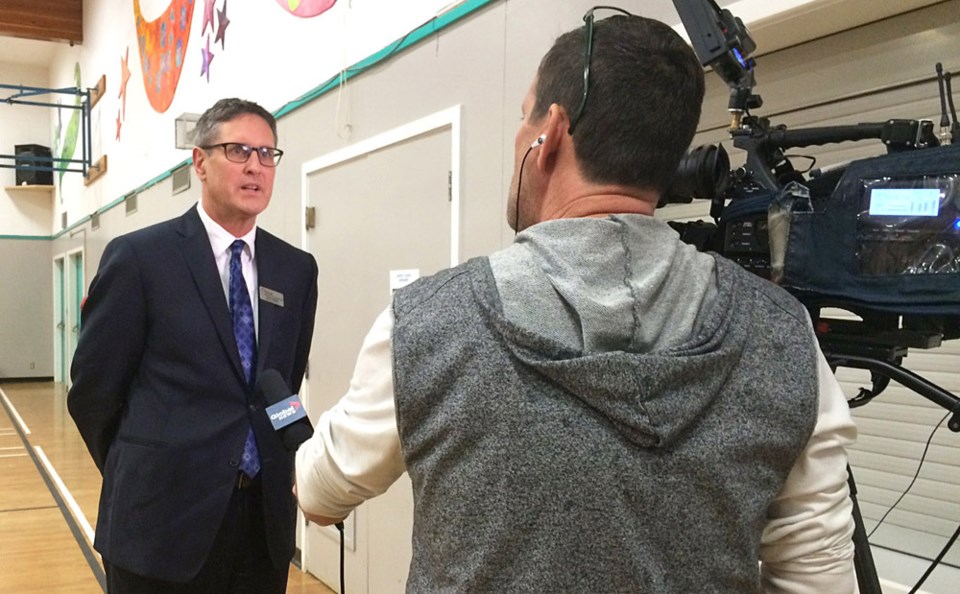Burnaby could be receiving more than 500 Syrian refugees as the Liberal government moves to bring 25,000 to Canada by the year’s end.
The initial figures are from Immigrant Services Society of B.C., which hosted a daylong emergency planning conference in Burnaby Monday.
“We’re still waiting for the federal government to formerly announce what the logistical arrangements are, but we’re getting hints that the airlifts will start in early December, Dec. 1 or so,” said the society’s Chris Friesen last Thursday. “They’re looking at as high as 900 a day.”
Immigrant Services Society is the main group tasked with helping government-assisted refugees settle in B.C. “Government-assisted” or “convention” refugees are preapproved by the United Nations and receive government help for their first year in Canada.
Immigrant Services Society’s initial estimates show 477 to 596 Syrian government-assisted refugees are expected in Burnaby, which is the third most common municipality in B.C. for government-assisted refugees to settle. About a quarter of those arriving in Burnaby will likely be children and teens, based on previous settlement patterns. The society also estimates 300 longterm housing units are needed in Burnaby to accommodate the new arrivals.
Friesen is asking people with any types of housing – extra rooms, basement suites, vacant apartments – to sign up at issbc.org.
Burnaby Mayor Derek Corrigan raised concerns about government support and Burnaby’s low vacancy rates for affordable rental housing.
“It’s a good thing that we’re trying to help with refugees,” he said, “But there’s a responsibility on the part of the government to provide the resources, not just to expect they’re going to spring from local communities. It’s just not there.”
Corrigan said the “Vietnamese boat people” (refugees who fled Vietnam during and after the Vietnamese War) went to smaller towns, integrated and then moved to larger communities.
“Our vacancy rates are almost zero. I don’t know where they are going to put people. We can’t accommodate the people here who are homeless,” Corrigan said. “It just seems to me putting new refugees in communities that are already stretched for social housing, especially affordable rental housing, doesn’t make much sense.”
Monday’s planning meeting with Immigrant Services Society included representatives from the airport, various government ministries, health authorities, school boards, municipal governments, and organizations like the Red Cross. The goal was to come up with a plan to better help government-assisted refugees in their first six to eight weeks in Canada. The society should have more concrete numbers for Burnaby by the end of the week.
As for Friday’s terrorist attacks on Paris, Friesen indicated they don’t change Canada’s plans to help with the humanitarian crisis.
“According to (Justin) Trudeau’s government, it changes nothing. Security background checks will continue as they always have and the goal remains, 25,000 before Dec. 31,” Friesen said.



